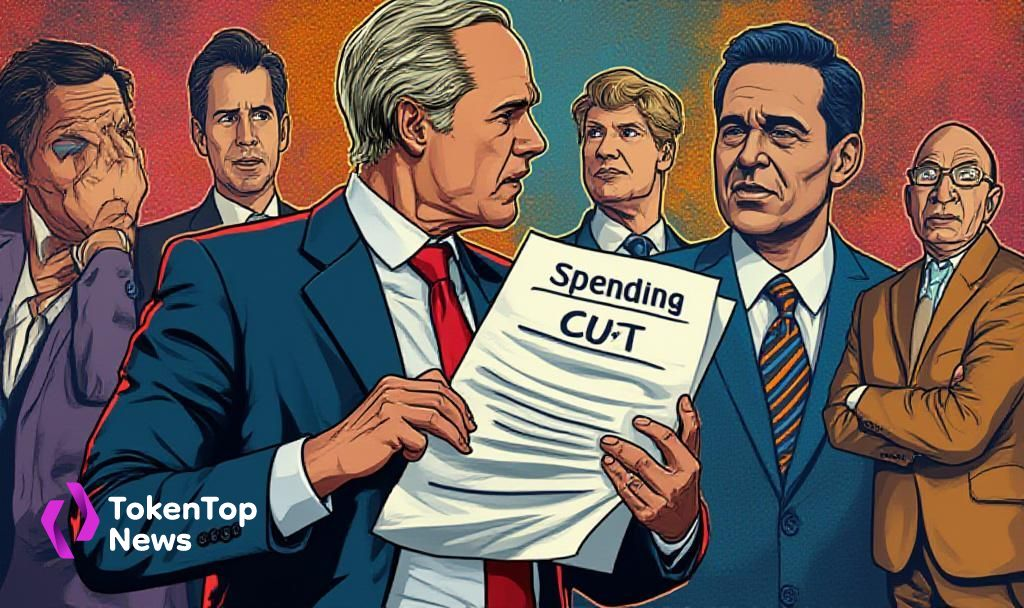Trump’s Bill Aims to Cut $1.6 Trillion Spending
- Main event driven by Trump with fiscal implications.
- Possible mixed economic impacts identified.
- Analysts dispute proposed deficit reduction claims.

Donald Trump introduces a new spending bill aiming to cut $1.6 trillion in government spending. The proposal is spearheaded by Trump alongside Speaker Mike Johnson and Russ Vought, impacting fiscal policy significantly.
The bill suggests substantial savings, but independent analysts have expressed skepticism about the fiscal projections presented.
The “One Big Beautiful Bill” proposes unprecedented spending cuts and tax relief under Donald Trump’s leadership. Karoline Leavitt and Russ Vought support this agenda, targeting a $1.6 trillion cut over ten years. Speaker Mike Johnson has vocalized strong backing for the initiative, stating it will boost the U.S. economy.
“It is $1.4 trillion in reduced deficits and debt. That’s why this is such a paramount, fiscally responsible bill.” — Russ Vought, Director, Office of Management and Budget
Market analysts project that despite government assertions, the proposed measures may increase the deficit rather than reduce it. Independent analyses suggest potential revenue shortfalls due to the proposed changes. Skepticism remains as the divided opinions reveal uncertainties in projected fiscal outcomes.
Reports from the Congressional Budget Office challenge the proposal’s efficacy, anticipating a $1.7-$3.2 trillion increase in the budget deficit. Traditional markets saw little volatility following the bill’s passage in Congress. While crypto prices like BTC and ETH remained stable, financial analysts warn of potential macroeconomic ripple effects.
Potential outcomes of the bill remain speculative, with crypto markets staying indifferent thus far. Analysts highlight economic growth assumptions as vital variables for the proposal’s impact, considering past legislative precedents for context.




